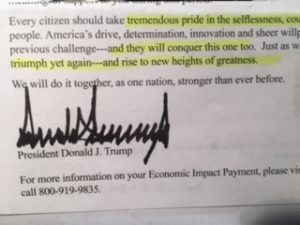Plague Journal, Freedom?
Saturday. Today if I am fortunate I will find a Bonsai, a miniature tree trained to grow, beautiful, in a dish. You’ve seen them. The cultivation of Bonsai is an artform perfected in Japan, originating in China. A Bonsai is a  fragment of nature, confined and cared for, in order to disclose the beauty that lies potentially within a given species of tree. Is the Bonsai free? Is what we mean by “freedom” applicable only to human individuals? Is a beautiful, ordered life the product of absolute freedom? Is the constraint of principle necessary to achieve meaning?
fragment of nature, confined and cared for, in order to disclose the beauty that lies potentially within a given species of tree. Is the Bonsai free? Is what we mean by “freedom” applicable only to human individuals? Is a beautiful, ordered life the product of absolute freedom? Is the constraint of principle necessary to achieve meaning?
I thought about “freedom” again when the evening news reported that once again armed demonstrators were congregating at the capitol building in Lansing Michigan. Massive demonstrations took place in Sacramento California as well. They were not armed. Perhaps this is one difference between a sunny California beach, and the woods of Michigan. In both cases Americans want what they want, never mind the caution voiced by scientists acquainted with facts. Feeling outflanks fact, in the name of freedom.
With time on my hands for reading, I am stimulated by the prose of Albert Camus as I read The Rebel. This is the book, an overview of the history of rebellion in the West that caused a final break in the friendship between Camus and Jean Paul Sartre. Perhaps these lines will convey the flavor of the distinction which the author makes between rebellion and revolution. The underlined emphasis is my own.
Freedom, “that terrible word inscribed on the chariot of the storm,”* is the motivating principle of all revolutions. Without it, justice seems inconceivable to the rebel’s mind. There comes a time, however, when justice demands the suspension of freedom. Then terror, on a grand or small scale, makes its appearance to consummate the revolution. Every act of rebellion expresses a nostalgia for innocence and an appeal to the essence of being. But one day nostalgia takes up arms and assumes the responsibility of total guilt; in other words, adopts murder and violence. *Philothee O’Neddy p.105
Rebellion is, by nature, limited in scope. It is no more than an incoherent pronouncement. Revolution, on the contrary, originates in the realm of ideas. Specifically, it is the injection of ideas into historical experience, while rebellion is only the movement that leads from individual experience into the realm of ideas. While even the collective history of a movement of rebellion is always that of a fruitless struggle with facts, of an obscure protest which involves neither methods nor reasons, a revolution is an attempt to shape actions to ideas, to fit the world into a theoretic frame. That is why rebellion kills men while revolution destroys both men and principles. p. 106
When a slave rebels against his master, the situation presented is of one man pitted against another, under a cruel sky, far from the exalted realms of principles. The final result is merely the murder of a man. p.108
Without question this is a time of rebellion. Certainly no one expected that Nature would intervene in our day to day affairs, bringing the economy to a halt, disclosing the vacuum of leadership in the country at the national level, revealing the ineffectiveness of our defunded institutions to respond to this emergency. Will the critical task of education from the youngest to the adult, — resume in the fall? Will students show up? There are endless unknowns, questions asked about every sector of our society. Certainly we’d like to have everything that we have lost due the threat of a deadly virus. Rebellion is in the air.
 A family member received by mail notification of their stimulus check from the White House, under the signature of President Trump. The letter was replete with the self congratulatory adjectives that the President is fond of. Seems to me that “America triumphant” is belied presently by the facts. Also, the notice was printed on cheap typing paper, not a piece of White House letterhead. And who uses a Sharpee if one wants one’s signature to convey the gravitas, the dignity of the highest office in the land?
A family member received by mail notification of their stimulus check from the White House, under the signature of President Trump. The letter was replete with the self congratulatory adjectives that the President is fond of. Seems to me that “America triumphant” is belied presently by the facts. Also, the notice was printed on cheap typing paper, not a piece of White House letterhead. And who uses a Sharpee if one wants one’s signature to convey the gravitas, the dignity of the highest office in the land?